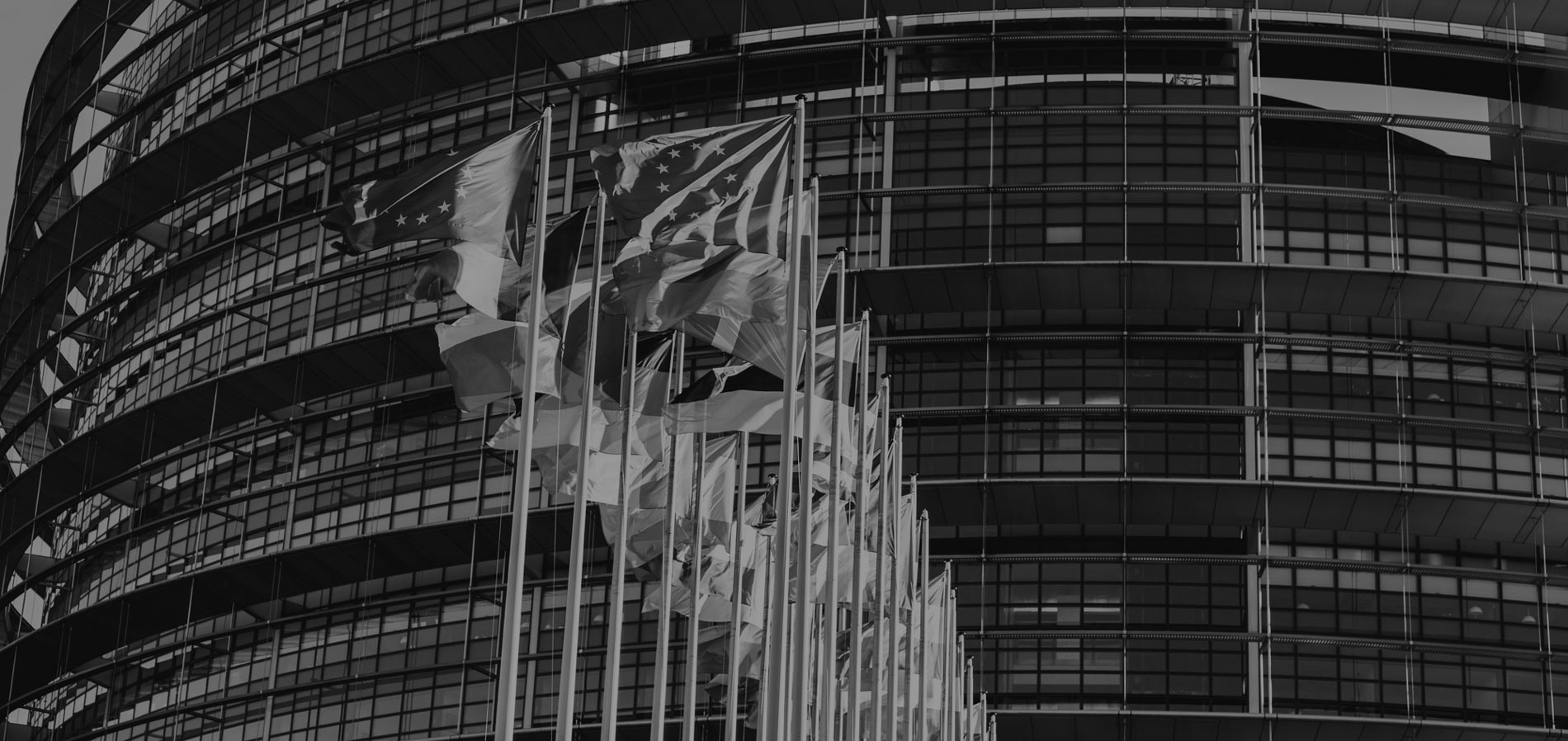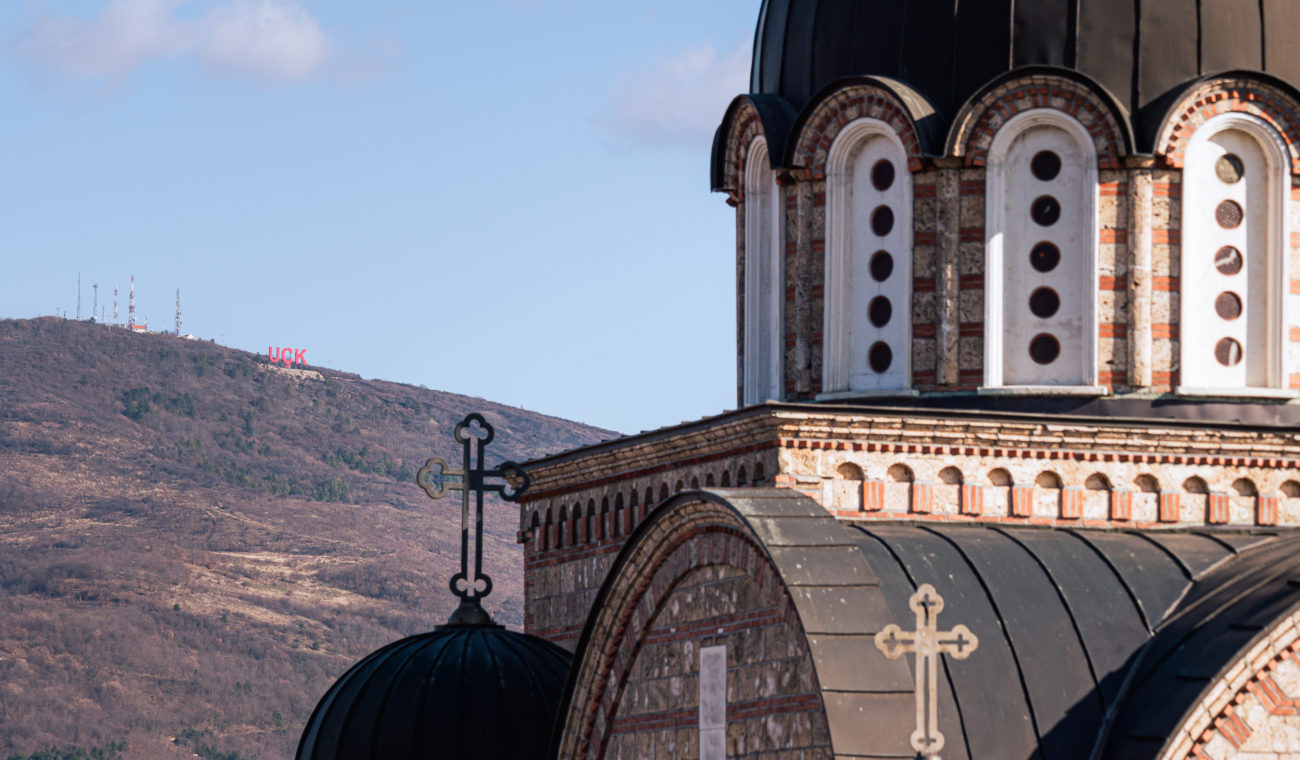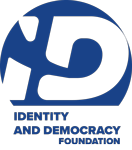Risk of conflagration in Bosnia and Kosovo
Every Monday morning, you can listen the director of the Identity and Democracy Foundation on Ligne Droite, Radio Courtoisie’s morning show, followed by his column on our website. This week, we take a look at the tensions in Bosnia-Herzegovina and Kosovo-and-Metohija, following the ID Foundation’s study trip to the Balkans.
Watch the video:
The ID Foundation has just returned from a study trip to the Balkans. Can you tell us why you chose this destination?
First of all, the Balkans are regularly mentioned as a possible enlargement site for the European Union. Secondly, the dangers affecting this region have consequences for the rest of Europe. First and foremost, there’s the mafia risk. Albanian and Bosnian mafias are expanding their activities throughout the European Union. Added to this is the Islamist problem. Bosnia and Kosovo are becoming Islamist hotbeds in Europe. In the case of Bosnia, the Muslim Brotherhood has a long history, and the Bosnian war saw thousands of foreign jihadist fighters come to fight alongside Bosnian nationalists, jihadists who then remained in the country. In the case of Kosovo, the rise of Islamism is more recent, but just as worrying. Many Albanians and Bosnians have joined the ranks of the Islamic State. Finally, this region is a kind of laboratory for the Europe of tomorrow. If we do nothing, what happened in the Balkans is likely to be repeated in the rest of Europe as inter-community tensions rise. In the years to come, the Balkans are likely to become a central issue for the rest of Europe.
And which Balkan countries did you visit?
We visited Bosnia-Herzegovina, and more specifically the Serbian Republic, as well as the Serbian region of Kosovo-and-Metochia. These two regions are the ones where tensions persist the most, with clashes between Islam and Christianity. In Kosovo, Albanian nationalists declared independence in 2008, but this is not recognized by the international community. The UN and most other countries continue to consider the region part of Serbia. What’s more, Serbs represent 5% of the population. They are a majority in the north of the country, refuse independence and remain loyal to Serbia, which does not recognize Kosovo’s independence. Tensions are therefore very high. In Bosnia, the situation is a little different: since the end of the war, the Dayton Accords have divided the country into two entities, on one side the predominantly Serbian and Christian Serbian Republic, and on the other the predominantly Muslim Federation of Bosnia-Herzegovina. Officially, these two entities are on an equal footing, and Bosnia is a federal state. But the international High Representative in Bosnia-Herzegovina, who is normally responsible for ensuring good relations between the communities, regularly favors the Muslim Bosniaks. This has led to a rise in tensions and a growing temptation on the part of Bosnian Serbs to demand independence for their republic. In the powder keg that is the Balkans, these two countries could well be the matches leading to a general conflagration.
What explains the explosive situation in these two countries?
These two countries were born of the dissolution of Yugoslavia, a multi-confessional, multi-ethnic state born after the First World War. From the 1980s onwards, nationalists from the various peoples that made up Yugoslavia began to challenge the central state. This led to the dissolution of the country in the 1990s and to a war between two camps: on the one hand, the Serbs, who constituted the largest and most powerful community in Yugoslavia and sought to build a Greater Serbia by bringing together all the territories where they were present, and on the other, the nationalists of the other communities – Croats, Slovenes, Albanians, Bosnians and Macedonians – who sought independence for their country. The Serbs were defeated as a result of Western intervention, and in particular American intervention, which created the new states we know today. Nevertheless, the defeat of the Serbs did not solve all the problems in the region, as many Serbs found themselves in the minority outside the Republic of Serbia, such as the Serbs of Kosovo and Bosnia.
And what is the situation of these Serbs?
The situation is quite different. In Bosnia, it’s quite good, as they benefit from an autonomous republic. However, this situation is rather precarious, as the United States and the European Union favor the Bosnian side and are seeking to reduce the Serbian republic’s room for maneuver. One example is the fact that, according to the constitution, for a law to be validated, a vote must be taken by both the federal Bosnian parliament and the two federated parliaments. However, the international High Representative regularly grants himself the right to override the Serbian veto. In the end, the Serbs are the only ones to truly defend the Dayton Accords, which were imposed on them following their defeat, whereas many Bosniaks would like to call into question Serb autonomy and the federal nature of the country, which would enable them to impose their will on the Serbs and Croats. In Kosovo, the situation is much tougher. In the north of the country, where Serbs are in the majority, their situation is already complicated, but it’s even worse in the enclaves in Muslim Albanian territory, where Serbs are regularly attacked. We passed through several of these enclaves, and it’s not unusual to see memorials commemorating Serbian civilians murdered with impunity by Albanians. The Albanians are visibly intent on driving out the Serbs, ethnically cleansing the region to create an ethnically homogenous state. We visited the Visoki Dečani monastery, a UNESCO World Heritage site that is regularly attacked by Albanians, from tags glorifying Daesh or the UCK, the terrorist organization that provoked the Kosovo war, to mortar fire. The monastery is protected by the army. There is a real threat to the very existence of this Christian Serb minority in Kosovo, and the Bosnian Serbs fear they could find themselves in the same situation as the Serbs in Kosovo.
And how is the West positioning itself in this conflict?
The United States and the European Union continue to support the Muslims of Bosnia and Kosovo. In fact, there is a great deal of hypocrisy on the part of the West, which supports the Albanian separatists in Kosovo, but condemns the Bosnian Serbs when the latter threaten to declare independence if their rights are not respected. This support continues despite the growth of Islamism in both regions and the growing influence of Turkey, which is seeking to establish itself in the Balkans. By aligning itself entirely with American interests and agenda, the European Union is abandoning a European and Christian nation to the Islamist threat.






